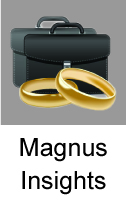Holiday Inn
I wish it were possible to know the number of Holiday Inns where I have stayed and the number of nights I have stayed in them. When my parents and I traveled across the “lower 48″ states in the United States, our hotel of choice was Holiday Inn. Often, we planned our itinerary around the location of Holiday Inns. I loved swimming in the pool in every Holiday Inn we visited. Those were the days! In my work as a trial consultant since 1989, my travels have taken me across the United States, from Alaska to the U.S. Virgin

